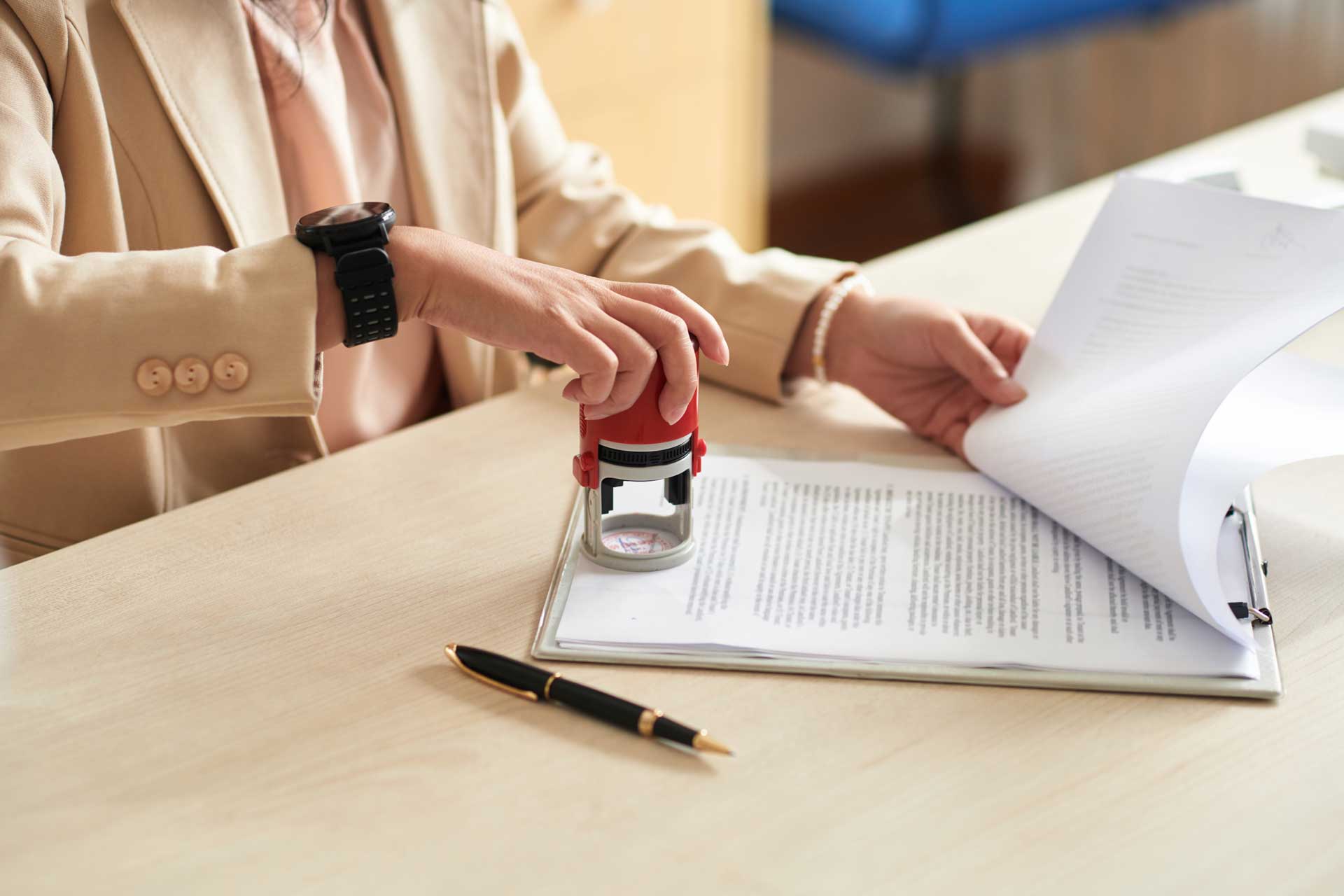
As a notary public, you hold a position of trust, responsible for authenticating documents and protecting against fraud. However, notary fraud can occur when bad actors misuse a notary’s seal or when notaries themselves unknowingly or intentionally commit fraud. Whether the scam stems from external parties or internal mistakes, it’s essential to understand how to protect yourself, recognize signs of fraudulent activity, and ensure that your notarial acts are legally sound.
This guide will cover identifying notary fraud, the steps to take if fraud occurs, and strategies for safeguarding your notarial practice from such risks.
Notary fraud occurs when a notary’s seal or commission is misused for illegitimate purposes. It can take various forms, including the unauthorized use of a notary seal, the falsification of signatures, or a notary failing to follow proper procedures.
Understanding these forms of fraud is essential for recognizing potential risks in your day-to-day notarial duties.
As a notary, you should be vigilant for signs of fraudulent activity. Being proactive in recognizing red flags helps protect you from becoming unknowingly involved in fraudulent schemes.
By being alert and following best practices, you can significantly reduce the chances of encountering fraud in your notarial work.
Despite your best efforts, fraud can still occur, and it’s essential to know how to handle it if it does. Taking immediate action helps minimize the impact and protects your legal standing and reputation.
| Step | Action |
| Report Fraud | Notify the notary commission and law enforcement immediately. |
| File a Report | File a detailed police report about the stolen or misused seal. |
| Revoke the Seal | Contact your state’s notary division to revoke or replace the seal. |
| Notify Clients | Inform any clients or employers who may be affected. |
Taking preventive measures is one of the best ways to protect yourself from being a victim or perpetrator of notary fraud. These best practices can help safeguard your tools, documents, and reputation.
Following these best practices can significantly reduce the risk of fraudulent activity in your notarial work.
Being involved in notary fraud—whether knowingly or unknowingly—can lead to serious legal consequences, including fines, loss of commission, or even lawsuits. To protect yourself legally, it’s essential to practice due diligence in every notarization.
Read More: Understanding Notary Bonds and Errors and Omissions (E&O) Insurance
Handling notary fraud requires vigilance, awareness, and a commitment to following best practices. Whether fraud occurs through stolen tools, forged documents, or procedural errors, knowing how to respond quickly can protect your notary commission and the public you serve.
By taking preventive measures, reporting fraud when it happens, and safeguarding your notary tools, you can minimize your risk and maintain the integrity of your notarial practice. For additional resources and guidance on preventing notary fraud, visit the Notary Public Association. They offer helpful tools to stay protected and compliant throughout your career.
Disclaimer: All information provided by Notary Public Association is for educational purposes only and is not intended as legal advice. Notary Public Association makes no representations or warranties as to the accuracy, completeness, or applicability of the information provided and assumes no liability for any actions taken in reliance on it. Always consult a licensed attorney or your local commissioning authority for guidance specific to your notary responsibilities and jurisdiction.
Stay informed with our latest updates, tips, and exclusive offers – subscribe now!